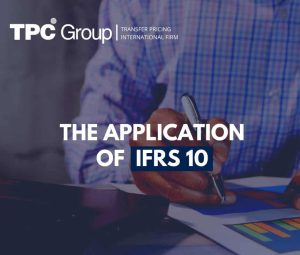The purpose of the financial audit is the process whose final result is the issuance of a report, in which the auditor makes known his opinion on whether the financial statements or financial figures are prepared, in all significant aspects, in accordance with the financial reporting framework or applicable legal framework. This process can only be carried out through an element called audit evidence, since the auditor does his work after the company’s operations.
Brief history of auditing in Colombia
As a practice that is as old and as diverse as different civilizations, it has been evolving over time.
The history tells of a strong influence derived from Spain and the church during the 19th century, introducing the fiscal revision and the legal-formal market.
With the Kemmerer mission in March 1923, the introduction of the Anglo-Saxon side began, through the figures of the superintendencies and the comptroller’s office of the republic. Accounting firms and financial statement auditing practices appear.
Since 1991, through the constitutional reform, a real importance is given to the audit and the internal control; for this reason, in Colombia it continues to be structured by means of laws.
Parallel to the development of accounting, auditing was assuming its advances with the purpose of being able to carry out revisions or verifications of accounting, just as accounting, auditing was the object of standardization by the governments and professional associations that exercised such professions.
Importance of the audit
The importance of the audit is concentrated in a wide way in the public faith, also in that it is shown as an impartial and suitable second opinion, in the same way its importance is recognized in the representation and defense of the social and societal interests.
This value lies in the qualities that the public accountant must possess and the way in which he must proceed to carry out the work, that is, in the characteristics of the audit work.
The professional exercise of the Audit in Colombia, is assigned to the profession of the Public Accountant by means of the Law 43 of 1990, which makes it of great importance that the countable professionals, are formed with an ample set of competitions acquired from the classrooms and complemented with the professional experience in this field, since he is the one who testifies that the information is reliable and therefore relevant for the decision making, which assures the client that in any audit assignment he will act with diligence and according to the technical norms in force.
Colombia is a country that constantly seeks to access international markets and business, for this reason since 2009 it has regulated different laws and regulatory decrees for the adoption of international standards both in the field of accounting standards and auditing standards. In this sense, the adoption of this set of standards is applicable and beneficial to both major sectors of the economy: public and private.
The IFRS arise from the need to unify the preparation, presentation and analysis of the financial statements of companies from different countries, allowing the information to be comparable and verifiable in such a way that it helps investors and users to make decisions in a fiscal, economic and investment context in a market economy.
In addition to serving as a reliable source for management or even third-party decision making, accounting serves as evidence for judicial or administrative proceedings, but only if it is properly maintained. Therefore, it is a necessary requirement that accounting be kept in accordance with the standards imposed by the relevant regulations so that it can be used as evidence by judicial and administrative authorities.
Therefore, the application of the audit in the private and public sector companies is of great importance since it generates a high degree of confidence and credibility of the entity’s affairs to the users of the information, for the correct decision making for the continuous improvement, growth and permanence in time of its economic activity.
Audit Regulatory Framework in Colombia
Colombian accounting regulation was standardized to International Accounting Standards (IAS) and/or International Financial Reporting Standards (IFRS). These standards are regulated by Law 1314 of 2009 called the law of accounting convergence. As of this law, the sole regulatory decree 2420 of 2015 issued by the Ministry of Commerce, Industry and Tourism is in force, which contains the technical regulatory framework for accounting, financial information and assurance of information of mandatory compliance by the “preparers of financial information”.
The normative framework of auditing in Colombia is contemplated in the generally accepted auditing standards in Colombia (NAGAS) Article 5 of Law 1314 of 2009, regulates the Information Assurance Standards that aim to make the information of a company reliable and therefore useful for making economic decisions and supported by the certification of the professional accountant.
The technical normative framework of the Information Assurance Standards (NAI), contains:
- The International Standards on Auditing – ISAs, are mandatory since 2016 and must be applied by independent public accountants who, in their actions other than the tax audit, perform audit work on financial information, review of historical financial information, other assurance work or other related services.
- The International Standards on Quality Control – NICC, must be applied by accounting firms, which includes independent accountants, that perform audit work or review of financial statements.
- The International Standards on Review Engagements – NIER, must be applied by independent public accountants or audit firms that execute review work on financial statements, without issuing an opinion on them.
- The International Standards on Assurance Engagements – ISAE, also called International Standards on Assurance Engagements – NIEA, are those where the auditor must give assurance on statements that the entity’s management has made.
- International Standards on Related Services – NISR, these standards apply to audit work related to financial information, although they can be applied to other types of assignments.
- Code of Ethics for Accounting Professionals, applicable since 2016 and is mandatory for all public accountants in the exercise of their profession regardless of the service they provide, taking into account the responsibility towards the public interest.
With the adoption of the IFRS in Colombia, the same was done with the NIAS. Recently, the Technical Council of Public Accounting (CTCP), delivered to the Ministry of Finance and Public Credit and the Ministry of Commerce, Industry and Tourism (MinCIT), the final document that consolidates the proposal for the final amendment, on the technical framework for auditing and assurance of financial information in Colombia; the proposal structures related amendments to ISA 250, 720, 800, 805, 810 and in turn, annexes changes to the International Standard on Assurance Engagements (NIEA) 3000.




